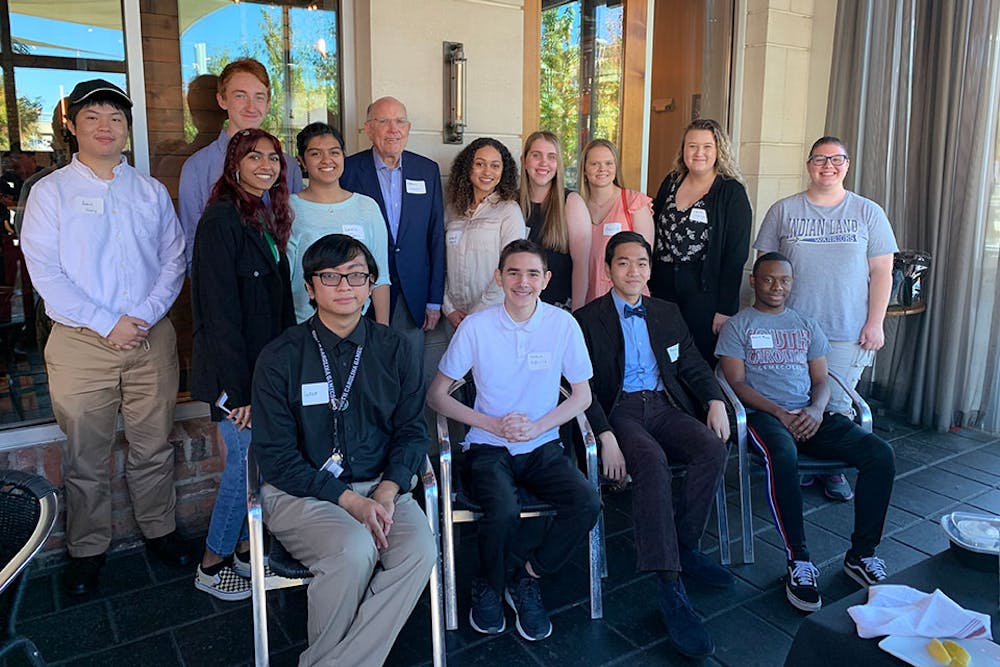Last summer, the College of Engineering and Computing (CEC) started its new Summer Start Scholars Program, which provides free, on-campus housing — including meals — for three weeks for 20 incoming first-generation freshmen.
The program was created by the CEC to improve student retention rates by focusing on a population that would not be exclusive of gender or minorities, but would also build community and provide support for its students. The CEC hopes to grow the program through its numbers and impact in the coming summer.
During these few weeks, the students can familiarize themselves with campus before the fall semester starts by taking an industrial design class that counts as an aesthetic and interpretive understanding (AIU) credit for Carolina Core.
Liya Patel, a first-year computer information systems student, said that living on campus during the program helped to ease any worries she had about navigating campus in the fall.
“I had the chance to register for my classes early, meet with my advisor, walk my schedule with my friends,” Patel said. “It really comforted me, and I wasn’t as nervous or stressed.”
Not only did the students engage in a three-credit-hour course, but they also got to participate in activities, such as going to Frankie’s Fun Park or visiting the McNAIR Center, which were planned by Brian McCaster, the inclusive programs coordinator for the CEC.
Patel said one of her favorite activities in the program was when McCaster told them to take a pipe cleaner and shape it into something they learned from the program. She said it felt like a good way to appreciate the group's time together and close off the program.
Through these activities, getting dinner with one another and working through a fast paced AIU course, the group formed a close bond.
Bradley Trevino, a first-year mechanical engineering student, said that other extracurriculars he’s involved in on campus came from friends he knew in the Summer Start Scholars Program.
“There’s just so many small things that have impacted my time here, like full time at USC, because I knew these people, because I chose to spend time with them,” Trevino said. “The research that I’m involved in, I only found out about it because my friend from the program told me about it.”
Patel, being the only computer information systems student in the program, said she could always count on her engineering friends in the program to help her out with concepts she couldn’t understand in engineering.
Trevino said that being around other first-generation students helped to motivate him.
“They’re willing to go the extra mile for (their goals),” Trevino said. “I’ve just never had to have been so aware of what I was doing here until I met them.”
Beyond the three-week program, the 20 students who completed the program will receive a $1,000 every year they are in their undergraduate. They also grab dinner with one another frequently and have formed a separate club for first-generation students within the CEC, going beyond the intentions behind the start of the program.
Jed Lyons, the senior associate dean for academic affairs and a mechanical engineering professor, spoke with CEC Dean Hossein Haj-Hariri about finding a donor for the program, making it free and more accessible for students in the future.
With about 35% of each incoming freshmen class in CEC being first-generation students, Lyons and McCaster hope to expand the Summer Start Scholars Program by hosting multiple groups of students on campus throughout the summer, every year.
“I like the idea of the program growing even more,” McCaster said. “I would love for Summer Start to just be something that’s — everyone knows about it.”

